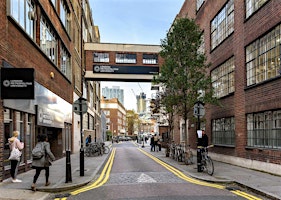Apply for this course
Please select when you would like to start:
If you're a UK applicant wanting to study full-time starting in September, you must apply via UCAS unless otherwise specified. If you're an international applicant wanting to study full-time, you can choose to apply via UCAS or directly to the University.
If you're applying for part-time study, you should apply directly to the University. If you require a Student visa, please be aware that you will not be able to study as a part-time student at undergraduate level.
If you're applying for a degree starting in January/February, you can apply directly to the University.
Apply to us for January 2025
If you're a UK student or an EU student with settled or pre-settled status applying for January 2025, you can simply call our hotline on 0800 032 4441 or complete our fast-track online application form.
Why study this course?
Our Music Technology and Production BSc is a degree that seeks to equip and enthuse aspiring music producers, audio engineers and sound designers, with the creative and technical skills and knowledge needed to succeed working in music production, and audio post-production roles.
The course has a focus on the production and creation of music; however, it also examines the growing role that sound, and music play across a range of creative sectors, including film and tv, games and software design.
By studying the course, you will explore range of exciting subjects including:
• Music production
• Studio recording
• Composition and songwriting
• Mixing and mastering
• Sound design and location sound recording
• Audio post-production
• Game audio
• Audio effects and plugin development
Our students develop their skills by working towards a range of creative and practical projects, building a portfolio of music and audio work in a broad range of fields, guided by teaching staff with a wealth of music industry experience. By the end of their studies, our students are equipped with the expertise, critical thinking and understanding required to produce work to the highest professional standards.
Our graduates go on to successful careers as both freelance music producers, sound engineers and sound designers, as well as working in roles in sound and audio for major studios including Warner Bros. De Lane Lea, London.
Learn in a way that suits you best
Develop your skills using our music studios and computer labs in London, industry-based software and practicing with a range of musicians and styles
Make use of our range of cutting-edge equipment
Our set of professional surround sound music studios and live recording room is complemented by video editing suites, a foley studio and a music computer lab equipped with iMacs and MIDI keyboards
Learn from industry professionals
Our staff have experience working with top performers and organisations including Kate Nash, Clean Bandit, Wolf Alice, Imelda May, Echobelly, the BBC, Sky and Channel 4
Course modules
The modules listed below are for the academic year 2024/25 and represent the course modules at this time. Modules and module details (including, but not limited to, location and time) are subject to change over time.
Year* 1 modules
Year 2 modules
Year 3 modules
Audio Theory and Practice
This module currently runs:autumn semester - Tuesday morning
(core, 15 credits)
This module introduces you to the knowledge and methods that form the foundations for developing the theory and skills required as a Music Technologist, including developing fundamental understanding in acoustics and digital audio processing.
You will learn through engagement in a series of practical projects and in class tests designed to gradually develop the relevant proficiencies in audio production, including acoustic and digital audio, MIDI and electronic music instrument design.
By the end of this module you will have worked with Ableton and Max for Live, establishing core understanding of the programs and their fundamental operation.
Central to the module will be an exploration of the overlap between technology, creativity and self-reflective critical practice, using innovative and creative teaching and blended learning approaches the module acts to embed digital literacy at its core.
On completion of the module, you will have gained the knowledge, skills and basic practices of digital signal processing and MIDI, allowing them to develop further at level 5.
Throughout the course of this module, academic writing skills are developed in the preparation of technical reports, developing student critical thinking, and structuring of written work. Additionally, you will develop practices in citation and referencing as part of your research and report writing.
Aims of the module:
• To provide students with key knowledge in the science of sound in relation to studio-based production.
• To develop students’ understanding of the processes within music technology including digital signal processing, sound synthesis, MIDI and object-based audio programming.
• To develop students’ ability to describe working processes and to present work-in-progress for different audiences.
• To develop students’ ability to be analytical, reflective and critical.
• To introduce career-planning and documentation skills.
Digital Skills
This module currently runs:spring semester - Thursday afternoon
(core, 15 credits)
In this module, you will be introduced to the creative digital skills required for an undergraduate degree and career path in the creative industries, digital media, and journalism.
This digital literacy module provides an introduction to the software and practical skills required to produce a creative online presence and build a professional profile. You will be encouraged to develop your media practice utilising a range of tools and software packages. These skills in image production, for game and web design, desktop publishing and micro-blogging will be utilised in the development and presentation of CV's, promotional materials, posters, and flyers. The work you do on this module will be presented in a portfolio of digital practice and expertise, and you will additionally develop important skills in managing data and media assets in creative digital packages.
You will be introduced to key aspects and notions of employability. You will make use of these skills, knowledge, and understanding to plan and develop your career. You will reflect on your personal attributes, and examine the essential skills demanded of your favoured occupation. You will be encouraged to make use of these skills and knowledge to begin building your professional network and to formally and systematically consider your career development goals and strategies.
You will explore the ways in which digital media has transformed the nature of work and the development of careers. You will be encouraged to employ critical methods in the understanding of and analysis of digital media in the workplace context and explore opportunities for developing digital and media careers.
This module aims to:
• Equip you with the digital skills needed to prepare and present your work in the appropriate manner for your chosen field.
• Develop data and file management skills fundamental to the creative and media industries.
• Develop reflective practices by reviewing the needs of a design brief.
• Build confidence working with digital files, applying a range of document design and editing techniques.
• Allow you to better present your work for its intended audience.
Electronic Music Production
This module currently runs:autumn semester - Friday morning
(core, 15 credits)
In this module you will be introduced to core music production techniques and principles, developing your practice, and understanding of creating music, using industry-standard Digital Audio Workstations (DAWs).
You will be exploring many computer-based strategies of making music, utilising practical approaches while developing your sound design abilities through the use of synthesisers, samplers, and audio effects.
By becoming familiar with a range of creative sound manipulation and generation techniques, you will be able to better develop your skills as a music creator, while evolving your knowledge and understanding of current and developing practices.
Therefore, this module aims to:
• Develop your creative production using MIDI sequencing, editing and manipulation.
• Develop your creative production using audio editing and manipulation in the DAW environment.
• Explore methods and modes of sampling and loop-based production.
• Explore sound synthesis and sound design for electronic music production.
• Understand and explore digital audio signal flows within the context of multiple DAWs.
• Provide an experimental space to integrate audio effects inside your productions.
Your progress on the module will be formatively assessed over the course of the semester through a series of DAW specific tasks using both Logic Pro and Ableton Live before a final electronic music production, where you will be encouraged to explore appropriate DAW or plug-in software of your choice.
Read full detailsIntroduction to Mixing and Mastering
This module currently runs:spring semester - Tuesday morning
(core, 15 credits)
This module introduces the fundamental knowledge and practices surrounding the mixing and mastering of music and audio projects in digital audio workstations. By taking this module, you will be introduced to professional tools, plug-ins and practices, as well as strategies for mixing music more efficiently and effectively.
You will learn through engagement in a series of workshops, developing your skills in frequency equalisation (EQ), compression, gain staging and balancing levels and panorama, ultimately working towards a final mixing and mastering project.
You will have the opportunity to breakdown existing multitrack mixes, investigating how professional mixing engineers approach mixing different styles and genres, in order to get the best results. You will develop both critical and analytical listening skills through the analysis of reference songs and examples, allowing you to apply creative approaches more effectively in your own music.
By exploring mastering, you will have gained a solid understanding of the quality control process in the final stages of music production, ensuring that your audio projects across your studies will hold up to professional levels and technical standards.
On completion of the module, you will have gained the basic knowledge, skills and practices of studio-based audio production, allowing you to develop them further at level 5.
Aims of the module:
• To provide students with key knowledge in managing gain staging and audio levels within a digital environment.
• To develop students’ understanding of the processes of mixing and mastering with professional level DAW’s (digital audio workstations), including compression, EQ and balancing of signals.
• To develop students’ ability to describe working processes and to present work-in-progress for different audiences.
• To develop students’ ability to be analytical, reflective and critical.
• To introduce career pathways in audio engineering, such as mixing and mastering.
Music Industry
This module currently runs:autumn semester - Tuesday afternoon
(core, 15 credits)
In this module you will explore through lecture seminars and guided case studies, the agencies at work in the music industry, examining interdependent structures and economies.
By doing so you will gain deeper context into the role that music creators, producers and engineers play in the creation, distribution, and sale of music, fundamentally learning how the “business” of music operates.
The module will develop your key skills in critical thinking, research and understanding by examining concepts including music copyright and licensing, Intellectual Property (IP), and music publishing.
By exploring digital distribution, synchronisation, performing rights and royalties you will have a better understanding of the potential income streams for your creative work.
This module aims to:
• Develop your knowledge and understanding of music agencies.
• Introduce aspects of copyright law in relation to music.
• Examine contracts and working practices for producers and engineers.
• Expand your critical thinking for example in relation to opportunities for employment and enterprise.
• Understand the importance of diversity and inclusion in relation to the music industries.
• Improve your presentation and communication skills.
Therefore, by completing this module, you will have gained insight to the current developments of the UK music industry and its economies, with the aim to cultivate your scope for finding placements, revenue, and work within the industry.
You will be assessed in a combination of personal reflections, case studies and presentations, each fostering academic skills and self-evaluation.
Read full detailsMusic Theory for Songwriters
This module currently runs:spring semester - Tuesday afternoon
(core, 15 credits)
In this module, you be introduced to approaches to writing music. By exploring a range of musical styles and concepts relating to music theory, you will have the opportunity to develop your practices and understanding in songwriting.
You will explore important aspects of music theory which will enable you to better write and produce music, including rhythm, harmony, and melody. The fundamental aim of this module is to reduce the trial-and-error approach to writing music by establishing a theoretical foundation of the fundamental concepts.
By understanding the backgrounds and core principles of writing music, you will be able to better develop your creativity as a music creator, producer, or composer.
You will examine current examples of music and songs from a range of styles and genres, developing critical and analytical listening skills. By doing so, you will better understand how learned music theory plays a role of conveying meaning and emotion through music.
As part of group seminar discussions, you will engage in the analysis of songs and the ways in which writers use musical approaches, both in general, and specifically to certain genres and styles.
Therefore, this module aims to:
• Develop your understanding of rhythm, harmony, and melody.
• Examine intervals and their uses in music.
• Explore the types and uses of chords and progressions.
• Analyse song structures with examples in music.
• Develop your understanding of instrumentation and timbre.
• Establish critical and analytical listening as a core part of your practice.
Your progress on the module will be formatively assessed over the course of the semester through a series of exercises in songwriting and composition, ranging from listening and analysis to short compositional tasks in writing melodies and rhythms.
Read full detailsSound Design for Linear Media
This module currently runs:spring semester - Monday afternoon
(core, 15 credits)
Audio plays a key role in various forms of digital and visual media, and so this module aims to give a grounding in the fundamental theory and practices in audio recording, post-production, and sound design in linear media formats.
Through completion of this module, you will develop core transferable skills working in sound that will support practice in a range of media industries, including music production, film, television and games.
You will be introduced to a broad range of techniques in audio production for linear media formats, including, location and field recording, foley, tracklaying, sound design and audio mixing.
By taking this module, you will have the opportunity to complete a portfolio of exercises and projects that will develop your creative, experimental, and technical skill in working with sound. By reviewing existing works and evaluating the outcomes of your own projects, you will also develop critical listening and thinking skills.
Aims of the module:
● To devise the study of theory, literature, and techniques of audio for media
● To provide students with key skills and knowledge in audio production for linear media
● To explore practical, hands-on examinations of the technical and creative processes of sound design
● To develop students’ ability to describe working processes and to present work-in-progress for different audiences
● To develop students’ ability to be analytical, reflective, and critical.
Writing and Research Skills
This module currently runs:autumn semester - Thursday afternoon
(core, 15 credits)
This module will equip students on courses in creative technologies, media and journalism with essential transferrable skills of good writing and also introduce them to basic research and academic writing skills.
This module aims to develop good writing in a variety of ways, focusing on expectations and standards in the professional and academic environments; your studies on this module will include two major elements: good writing principles for your future profession, and academic writing skills for your higher education.
This way, you will first study what makes a good text: from the principles of clarity, brevity and simplicity to developing personal style. You will examine different types of texts, their communicative purposes and expectations in the professional world, as well as structure, narrative and storytelling principles, from emails and blogs to professional reports.
In the second part of this module, you will focus on a crucial skill in higher education: academic research, writing, and referencing. You will learn to search for, review and analyse information in academic and non-academic sources, extract relevant information, and use it to develop and support your argument in academic writing or other forms of presentation. You will examine and practice the specific language of academic writing, the structuring of academic texts and the goals and principles of academic referencing.
In addition, this module will help you develop confidence and creativity in writing, techniques to overcome writer’s block and ‘fear on a blank page’ and working in teams on creative and academics tasks to foster inclusive team-working skills.
In class you will learn through a combination of lectures and practical classes, with weekly writing tasks. You will be assessed through a series of blog posts, a written report and weekly online journal contributions.
Read full detailsAdvanced Music Production
(core, 15 credits)In this module, you will develop further your practices in music technology, production and audio engineering covered at Level 4. You will explore different creative approaches to working with audio, producing, and mixing music.
You will cultivate professional-level technical skills in music production, alongside the sharpening of your critical and analytical listening skills, through the evaluation of reference works.
You will explore creative uses of sampling, glitch-based music production with integration of MIDI controllers with automation, an advanced exploration of different synthesis modes and their application for sound design in music, with the aim to produce more developed sounding productions. You will also explore approaches to music production for remixes and creating engaging music with pre-made stems.
Additionally, you will work to further understand advanced audio processes by applying mixing techniques to existing songs as well as your own productions. This will include more advanced concepts of equalisation, compression, saturation, distortion, and imaging.
This module aims to:
• Explore creative approaches in producing electronic music.
• Develop further your practices of music and sound production.
• Introduce advanced concepts of mixing.
• Further expand approaches to writing music.
• Introduce more potential career pathways for music producers including sound design and remixing.
Advanced Songwriting
(core, 15 credits)In this module you will build upon your understanding and practice in songwriting learned at Level 4. Through the study of established approaches in arrangement, harmony, melody, and rhythm, you will develop more intuitive approaches to writing while understanding how technology can be used to aid the creative writing process.
By developing your compositional skills, you will learn the concepts and use of non-diatonic modes, chord progressions, melodies, cadence, and voice leading, as tools to make music with more continuity and flow. You will also be guided through beat building and synth layering. Upon utilising these skills, you will be able to better associate musical tone to feelings, and uniquely approach techniques of writing music to external cues, prompts and briefs.
You will expand your knowledge of popular song forms, including further analysis of how verses, choruses, bridges, refrains, and middle-eights, are used effectively in combination with relevant energy levels.
You will cultivate your collaborative skills by composing in partnerships, developing effective means of communication and cooperation in a musical setting, integrating vocal production techniques. In addition, you will have the opportunity to work towards live songwriting briefs, in line with practices in the synchronisation and publishing sectors.
By practicing lyrical composition, you will also develop skills in adapting material for use as effective lyrics, for example from a range of different stimuli such as newspapers, social media, or personal experience. By developing this practice, you will be better equipped in collaborative song writing and working with clients.
Your progress will be assessed through a number of formative exercises in composition, including form and structure, chord progressions, harmony, writing melody and hooks.
Therefore, this module aims to:
• Develop your composition and song writing approaches, allowing you to make more engaging and interesting music.
• Allow you to work more effectively in small groups.
• Facilitate your decision making in songwriting.
• Grow your understanding of melody and harmony to make better use of intervals and conveying meaning in music.
• Allow you to make better structured music, with direction and a balance between unity and variety.
Location Sound and Dialogue Production
(core, 15 credits)In this module, you will develop professional working practices in sound production for film, including location sound recording, ADR and dialogue recording and audio postproduction and mixing.
By taking this module, you will open up pathways in film production and postproduction with relation to sound, whether it be working as part of the sound team as a recordist or boom operator, or by developing a deeper understanding of sound for your own film productions.
In this practice-based module, you will work as a part of production teams, producing a portfolio of short films and videos with a focus on audio and sound production quality. By doing so, you will work on exercises in location sound recording, ADR and dialogue recording in studio environments, and audio postproduction and mixing of sound to film.
By working in small production teams of Music Technologist and Film and TV production students, you will have the opportunity to develop professional working practices, as well as foster collaborations for later projects in your studies.
This module aims to:
• Explore professional working practices in sound for film and TV.
• Develop knowledge and understanding of sound and recording methods on location.
• Enhance team working practices in cross media productions.
• Instil best practices in audio postproduction and mixing for film and TV.
• Introduce career pathways in location sound and audio postproduction.
Max for Live
(core, 15 credits)In Max for Live, you will explore the uses of music technologies for live applications, including triggers, controller, live performance, and interaction. Using Cycling ‘74 Max within Ableton Live (Max for Live), you will engage in study of Human Computer Interaction (HCI) in relation to music, electronic instrument design and performance.
You will have the opportunity develop advanced interactive patches, interfaces, and touch control surfaces for the purpose of music creation and live performance, expanding upon the audio programming learned at Level 4.
By examining interactivity and interface design, you will also explore cognition and accessibility. Examining a range of uses of interaction in the design of music and live performance devices, considering inclusive approaches for users with a diverse range of users and needs.
The module will help foster your critical “out the box” thinking and problem solving in relation to sound and music applications. Accordingly, you will develop your skills and understanding in signal flow, logic functions, product design and development and user intuition.
This module aims to:
• Develop inventive problem-solving approaches
• Embed inclusive design approaches for users with a range of needs
• Expand upon your understanding of signal flow and audio programming
• Introduce an experimentation and improvised approach to music creation and performance
• Develop further practice in Ableton Live and Cycling ’74 Max
• Design and produce Graphical User Interfaces (GUI) for music devices
Recording Studio Practice
(core, 15 credits)In this module you will learn studio-based music production skills, putting into practice the music technology theory and practice learned at Level 4. As such you will develop your understanding of sound and acoustics through developing your vocabulary of recording techniques and microphone types and placements.
You will cover the different classifications of microphones, learning their uses and properties, as well as developing your understanding of microphone positioning and the recording of different instruments. Through practical exercises and in-class workshops you further explore signal flow and the use of buses, inserts and groups in a studio environment. By doing so you will practice the use of patch bays, outboard processing, and analogue consoles, better equipping you for working in studio environments.
You will also expand upon the psychoacoustic principles already covered at Level 4 by making use of stereo, close and distant microphone placements. The practice in this module will further develop your critical listening skills and decision making in the production of sound and music.
This module aims to:
● Develop your understanding of sound and signal flow
● Allow you to work more effectively in a studio environment
● Gain the confidence in recording a range of instruments
● Expand your practice in Avid Pro Tools, enabling you to go on to work in most professional studio environments.
Therefore, on completion of this module you will be better equipped to explore potential works placements or internships in recording and audio production studios.
Sound Design for Games
(core, 15 credits)In this module you will gain a strong understanding of the impact of audio for games, combined with attaining the skills needed to develop audio assets and implement them in industry standard middleware.
You will be introduced to an overview of audio post-production theory, practice, and technologies, including their uses and applications.
This module will give you the opportunity to experience real-world working practices, by working in small production groups, collaboratively towards common goals.
The module will put you in the role of a Sound Designer, wherein you will design and experiment with aspects of sound including recording, synthesis, and effects, so that when combined, you are able to generate a unique auditory experience.
You will have the freedom to explore and develop individual ideas in the context of sound for game genres of your choosing, resulting in the production of a project that displays creative expression, as well as technical achievement.
Using effective sound design techniques and openly collaborating with your peers and game developers, you will have the opportunity to create unique soundscapes, effects, and textures, all geared towards implementation.
This in turn will form a piece of practical work, for your show-reel, which can be used for future promotion and collaboration within the gaming industry.
This module aims to:
• Enable you to capture, manipulate, and produce game audio.
• Explore middleware/DAW implementation.
• Enhance creative sound design techniques.
• Understand the role of music for gaming.
• Develop recording studio, mixing and production skills.
• Apply core concepts and techniques relating to sound design and music.
Documentary Photography
(option, 15 credits)This module provides an understanding of the history, theory and practices of documentary photography, and facilitates the development of key skills pertinent to contemporary practices of documentary photography. The module is weighted towards practice, and provides opportunities for students to develop photographic skills and/or enhance existing photographic skills, as well as their understanding of documentary photography. The module provides practical tuition in the skills of candid photography, portraiture, photographing objects in motion, and narrative photography; it will encourage and support students in the conception and development of their own documentary photographic projects. The module will facilitate students' critical reflection on their own practice as documentary photographers.
• You will become confident in the use of digital cameras in various modes, and for different purposes relevant to the practice of documentary photography.
• You will develop an understanding of the history of, and contemporary trends in documentary photography, and will be introduced to some of the key current debates about the status of documentary photography.
• You will be introduced to practices of editing and sequencing images, and final processing of images for publication using Adobe Lightroom and Photoshop.
• You will be encouraged to adopt a rigorous, critical perspective on your photographic practice.
Film and TV: Industry and Politics
(option, 15 credits)This module examines the interplay between commercial and political concerns in the film and television industries by exploring key moments in the development of screen industries as well as more contemporary concerns.
You will explore critical, socio-cultural, industrial and political debates surrounding film and television, considering the implications of these issues for film and television analysis and practice.
You will investigate a range of conflicts and controversies around topics such as regulation, censorship and control, propaganda, moral panics, and the impact of political developments on film and TV.
The module aims to
• Provide students with an overview of the development of key aspects of the film and TV industries and their political and social contexts in the UK and elsewhere.
• Develop students’ knowledge of key industrial and political moments and their significance.
• Develop students’ understanding of conflicts and controversies within the field.
• Enable students to critically analyse film and TV in relation to relevant cultural and political contexts.
You will be introduced to a number of key issues and case studies in which political concerns, pressures, and ideologies impact on film and television industries, such as (but not limited to):
• Public Service Broadcasting, commercial television and streaming
• ‘Video nasties’ and the BBFC
• Censorship and Hollywood’s ‘Red Scare’
• The Hays Code
• Film and television propaganda
• 1970s paranoid conspiracy thrillers
• ‘#OscarsSoWhite’
• ‘State of the Nation’ Film and Television
Topics such as these will be investigated alongside screenings of relevant film and television programmes in order to situate the issues within a specific screen context and explore their current significance.
Note: This optional module may become unavailable if the student intake numbers are low.
Journalism Industry Experience
(option, 15 credits)No module details available
Podcast Production and Sonic Branding
(option, 15 credits)In this module you will explore the techniques and practices in producing podcasts and developing audio branding. In doing so you will explore different creative approaches to working with audio and music as a means for branding in a range of different media.
In this practice-based module, you will learn to plan and structure podcasts, as well as develop an understanding, and skillset in audio editing; dialogue recording; and post-production techniques.
You will be introduced to a range of principles relating to the use of commercial music including sonic branding; jingles; and music licensing.
You will have the opportunity to work in groups as production teams, taking up specific working roles in the production of a podcast. In doing so, you will develop essential real-world working practices, including creating production diaries, and running sheets.
By planning and structuring the podcast, you will have the opportunity to develop a research topic, or subject of interest in a creative manner.
This module aims to:
• Explore principles of sonic branding in a range of media.
• Develop your knowledge of audio production and recording methods.
• Apply audio editing and production practices to create a professional podcast.
• Introduce potential career pathways in audio and podcast production.
• Enhance team working practices in audio projects.
• Develop a deeper understanding of music copyright.
Popular Music: History and Culture
(option, 15 credits)In this module we will explores and seek to understand popular music with reference to its history, the local and global cultures that it has been produced in, and some critical theories that help to explain it. We will consider the history of popular music since the mid-twentieth century as well as discrete periods of its development - such as 1955-60, 1975-80 and the early 2000s - and the types of music that emerged and were popular during them, e.g. rock n’ roll, hip-hop, punk and EDM.
Different forms and phases of pop music will be thought about historically and factually, as well as in terms of the socio-cultural and socio-economic circumstances that accompanied them and that informed their musical and cultural features and styles. Theories that develop and deepen an understanding of all these aspects of pop music will be drawn on. We will, for example, examine both rock and rap with reference to theories of race and ethnicity, sociological theories and feminist theories. Non-Western as well as Western music forms, styles, cultures and subcultures will also be considered, including afrobeat, jungle, rai, highlife, reggae and K-pop. Less commercial or fashionable Western forms like folk, country and independent and experimental music will be considered too. Yet other theories will be applied to some or all of the above forms and will include music theory, genre theory, social and political theory, psychoanalysis and historical materialism.
Particular attention will be paid to certain historical and socio-cultural issues that are apparent and significant in contemporary pop music such as gender, ethnicity, sexuality and social class. We will also consider some or all of the following important aspects of popular music and culture: globalisation, the construction of star personas and celebrity, the nature of audiences (and fans and subcultures), economic and cultural convergence and integration and technological (especially digital) innovation and change, especially its effect on musical creation and distribution (streaming, home studios, social media, etc).
Module aims:
By the end of this module you will:
• be familiar with the general history of popular music
• be familiar with particular and significant periods in popular musical development
• have an informed and coherent sense of the significant socio-cultural and economic circumstances that both gave rise to and were affected by different periods and genres of popular history
• have a good general sense of global popular musical forms including non-Western ones
• be informed about and aware of the creative industries in which different musical forms are produced and used
• be able accurately and consistently apply theoretical ideas to popular musical phenomena
• have an accurate and informed sense of the way in which different musical forms have been affected by each other and by the wider culture they have been produced in, as well as the way that they might have affected that culture in turn
• have a good sense of the way in which popular music intersects with technology, especially how developments in the former change the latter
Styling and Journalism
(option, 15 credits)In this module you will explore and practice styling within fashion journalism and related industries and critically analyse the relationship between the media and the fashion industry and the position of a multi-skilled fashion journalist and stylist within these industries. Thus, this module aims to develop both your practical skills expected by the fashion and media industries and the analytical skills implied by the higher education in journalism and fashion marketing.
Your practical training will focus on developing employable skills through producing styling and journalistic output in the variety of genres and formats that are expected by the industry – from researching, writing to brief and producing multimedia packages to resourcing looks and products to specific real-life briefs.
You will learn how to style to brief and to budget (for example, for cocktail parties, launch events, red carpets), how to promote your work through social media posts, and how to produce content on the intersection of journalism and styling, mainly through magazine articles and features. You will also learn how to critically analyse the work of others within the industry and examine the industry-specific and global cultural implications of their work.
In class, you will learn through a combination of lectures, practical classes and seminars, and weekly styling and journalism tasks. You will be assessed through a styling project presented through social media, a portfolio of 5 pieces of writing with multimedia elements, and an online journal.
Writing Short Films: Introduction to Screenwriting
(option, 15 credits)This module provides an opportunity to study the art and craft of screenwriting via the short film. Screenwriting differs from other forms of creative writing because the screenplay is a vehicle for a production team to create a film. It requires a combination of visual imagination and engineering to create a good screenplay. Students need to learn the clues which enable an audience to follow the story via character creation and use of action, choice of locations, the tone, the use of genre and narrative pattern of their story. Via a mix of film analysis and writing their own script, students will have a basic grounding in this element of film production.
Advanced Studio Engineering
(core, 15 credits)In this module, you will develop advanced practices working in the studio environment, expanding upon your learning at Level 5. In doing so, you will gain more experience working independently in technical roles relating to music production and specifically audio engineering.
This module aims to open pathways as recording engineers, mixing engineers and sound recordists by introducing you to further approaches to music production in a recording studio.
You will learn through a series of workshops focussing on pre-production and planning, use of analogue consoles, analogue mixing and summing, advanced and creative recording techniques and managing large scale recording sessions.
You will have the opportunity to evaluate and recreate recording approaches to a range of recordings, developing critical listening and synthesis of knowledge and practice. By doing so you will explore a range of techniques unique to specific styles of music.
Students are encouraged to work collaboratively, as well as networking externally, expanding their working network to bring in musicians and artists with which to produce in the studio. By doing so, student's will be building their portfolio and open up freelance working opportunities following graduation.
The aims of this module are:
• Enable students to work more effectively and confidently in the recording studio environment.
• Encourage students to work independently and collaboratively on recording studio projects.
• Allow student's to develop advanced level working practices in studio engineering.
• Develop transferable skills working in audio, sound recording and signal flow.
Audio Mastering and Remastering
(core, 15 credits)In this module you will explore and apply advanced audio mastering and remastering techniques, expanding your knowledge and practices in music technology. By developing these techniques, you will gain insight into the quality control approaches and industry standards needed to ensure music is release-ready and prepared for broadcast.
You will learn about the wider contexts of mastering as a sector and employment path following graduation. As such you will explore the history of mastering, its practices and relation to consumption formats such as vinyl, CD and surround sound.
You will expand the base knowledge and practices developed at Level 4 and 5, allowing you to apply more creative approaches to mastering by using equalisers, dynamic processors, and a range of digital signal processing effects.
In addition to mastering, you will also explore remastering, an important process in the music and media industries that allows for the restoration and preservation of audio. You will explore remastering applications in both music and audio post-production, including spectral repair, expansion and noise reduction.
Fundamental to the role of mastering and remastering engineers, you will also develop further your critical listening skill, and ability to recognise frequencies, compression and distortion in audio and music.
The aims of this module are:
• Enable students to work more effectively and confidently in mastering audio and music projects.
• Introduce advanced approaches to repairing audio, including spectral repair and noise reduction.
• Open career pathways in mastering and remastering.
• Develop further student's critical listening skills and understanding of sound.
• Establish industry standards and requirements for delivering audio projects.
Creative Practice Dissertation Project
(core, 15 credits)This module allows students to put into practice their research and project planning, based on learnings from the Autumn semester research module. They will develop a final project that encapsulates the learnings and aspirations from previous years of their course.
The project module should encase their own investigations and interests while targeting a specific audience defined in advance. The final output will happen in coordination with their course supervisor and will be course-specific.
This module allows students to demonstrate academic and/or professional skills compatible with their level of study as the project stimulates experimentation and innovation as part of their preparation for future academic or professional life.
The module aims to:
• deliver and plan a professional-level project in their area.
• help students choose areas of interest or affinity in their professional practice.
• enhance writing, research, pitching skills, as well as the development of specific artefacts specific to their course.
• equip students with the skills necessary to produce an independent body of work relating to their discipline that can enhance their employability by showcasing an independent body of work.
• prepare students for future independent practice.
Creative Research Dissertation Project
(core, 15 credits)This module allows students to develop research and project planning that encapsulates learnings and aspirations developed throughout their course. It is expected that students can demonstrate a range of skills and techniques acquired during previous years. The project module should encase their own investigations and interests while targeting a specific audience defined in advance. This module allows students to demonstrate academic and/or professional skills compatible with their level of study as the project stimulates experimentation and innovation as part of their preparation for future academic or professional life.
The module aims to:
• develop skills of planning, research, and delivery of a professional-level project in their area.
• help students choosing areas of interest or affinity in their professional practice.
• enhance writing, research, and pitching skills.
• equip students with the skills necessary to produce an independent body of work relating to their discipline
• prepare students for future independent practice.
Music Production Portfolio Development
(core, 15 credits)In this module, you will have the opportunity to cultivate your professional skills and practice by considering the wider implications of your work. By developing your work into a professional portfolio, you will be able to showcases your work in a manner suitable to your chosen music genre or professional marketplace.
In doing so, you will need to consider and evaluate the positioning of your work in the music marketplace and therefore explore best practices in marketing and promotion in relation to music production and freelance careers.
Through developing your project work into a professional portfolio, you will examine competitors and research approaches to exhibiting and representing you work. By doing so you will have gained knowledge and experience vital to working within the music industries and begun taking the steps needed to gain employment and work following graduation.
On successful completion of the module, you will have created a website as a platform to promote your work, developed the branding and identity for your work, completed a portfolio, and identified and explored approaches to connecting with audiences for your work.
The aims of this module are:
● Position and identify your creative work as a marketable artefact within its relevant field.
● Develop creative portfolios, demonstrating competencies to secure work.
● Examine strategies for promoting the release of music as either EP’s, singles, or albums, including ways in which music producers use their original works to demonstrate skill.
● Further expand students’ employability and professional skills in networking and communicating with audiences and potential clients.
● Develop abilities to a graduate-level, fostering a deeper understanding of critical, commercial, technical, and creative processes.
Research Project in Music Technology and Production
(core, 15 credits)In this module, you will be given the opportunity to explore a range of research approaches by investigating a topic of your own choosing relating to Music Technology and Production. In doing so you will be introduced to themes and approaches of research relating to music, its production and consumption.
By undertaking the research project, you are required to generate new qualitative or quantitative data and to then analyse and evaluate it in a research report. For example, for a qualitative research project, you may choose to research audience perceptions through interviews, surveys, or observations. Or for a quantitative research project, you may wish to carryout empirical testing in relation to sound and technology.
As well as developing your wider understanding of the contexts of your work, this module also aims to open pathways in research, including post graduate studies and research and development roles in relation to music technology.
The aims of this module are:
• Enable students to explore research topics of their own choosing.
• Develop critical understanding of music technology and production.
• Develop students’ knowledge of specific music technology and production topics.
• Allow students to conduct a piece of qualitative or quantitative research.
• Develop students’ ability to manage research projects to meet to deadlines.
Arts, Culture and Lifestyle Journalism
(option, 15 credits)Arts, Culture and Lifestyle Journalism delves into the intricacies of arts and culture reporting, exploring the interplay between traditional and digital formats. The module encompasses diverse artistic domains, including music, film, literature, art, architecture, dance, and theatre, also tailoring content to align with individual student interests and career aspirations. Beyond technical skills, the module thoroughly explores arts and culture journalism in its cultural, historical, global, and lifestyle aspects. This broader perspective encourages students to adopt self-reflective and critical viewpoints, fostering a nuanced understanding of the industry beyond conventional mediums and viewpoints.
The module aims to:
1. foster a nuanced understanding of the history, nature, and meaning of art, culture, and performance across diverse areas.
2. develop a critical knowledge of arts, culture, and lifestyle journalism routines.
3. delve into issues and debates within the arts and culture journalism landscape, including funding, criticism, and representation.
4. explore reporting and publishing trends illuminating current arts and culture movements.
5. ensure professional ethics and professional commitment to marginalised publics.
Audio Plug-in Coding
(option, 15 credits)In this module, you will be introduced to the field of coding for audio plug-ins, a fast-growing employment market. By taking this module you will have the opportunity to develop simple plugins for audio applications such as Logic, Ableton Live, Pro Tools and Cubase, using VST, VST3, AU, AUv3, AAX and LV2 formats in an accessible way.
You will cover digital signal processing concepts in the context of coding and producing them within the JUCE framework. By doing so, exploring their application in music and audio scenarios, ultimately working towards developing them into audio plugin devices.
Throughout the course of the module, you will explore the JUCE framework and basic C++ coding for audio plug-ins in a series of workshops and exercises, where you will work to develop a range of simple audio devices for a final portfolio submission.
This module aims to:
• Introduce student's to C++ programming for music.
• Develop skills working in the JUCE framework, in order to create audio plugins.
• Develop skills in digital signal processing.
• Enable student's to produce simple audio plugins.
Career Development Learning
This module currently runs:spring semester - Wednesday afternoon
autumn semester - Wednesday afternoon
(option, 15 credits)
The module enables students to undertake an appropriate, short professional activity related to their course at level 6 with a business or community organisation and to gain credit for their achievements. The activity can be professional training or certification, a volunteering activity, employment through internal or external work-based placements, research-related activities, business start-up projects, entrepreneurship programs and more. Please see the complete list of accepted activities on WebLearn.
Students are expected to engage in any one or combination of career development learning activities for a total of ~70 hours which should be recorded clearly in a tri-weekly learning log – part of the portfolio. The ~70 hours can be completed in ~30 working days in FT mode or spread over a semester in PT mode.
Students are expected to complete a total of ~150 hours, 70 hours of which is direct engagement in any one or combination of career development learning activities. Progress should be recorded clearly in tri-weekly learning logs which are part of the portfolio. The ~150 hours can be completed in ~35 working days in FT mode or spread over a semester in PT mode.
Students should register for the module to be briefed, undergo induction and module planning and have their career development learning activity approved before they take up the opportunity. Students must be made aware that both the "Learning Agreement" (LA) and relevant "Health and Safety (H&S) checklist", where applicable, must be approved before starting the learning activity. Activities started without prior explicit supervisor approval will not be accepted.
The module aims to provide students with the opportunity to:
• Gain a valuable experience of the working environment and the career opportunities available upon graduation.
• Sharpen critical thinking, creative problem-solving and the ability to articulate solutions correctly to decision-makers and budget-holders alike.
• Undertake a career development learning activity appropriate to their academic level to gain exposure and access to professional networks.
• Extend learning experience by applying and building on their academic skills and abilities by tackling real-life problems through enrichment and extracurricular programs related to student subject areas.
• Enhance existing skills and master new ones through a structured personal and Professional Development Plan (PDP).
Digital Video Post Production
(option, 15 credits)This module will examine, from an interdisciplinary perspective, techniques for video post-production. Students will analyse current trends in video post-production across a range of digital media industries; music, journalism, media, marketing, film and games. This module will examine and analyse traditional and modern visual special effects using examples from film, music video, television and games to illustrate the development of new techniques for post-production video editing. The role of AI in the video post-production techniques will also be explored. Practical exercises, lectures, and demonstrations will aid students in developing a wide spectrum of technical and analytical skills in the field of video post-production and visual special effects. Students will be expected to undertake all stages of the creative planning process to deliver an integrated digital video and audio project to complete the module. This module aims to:
● Develop and encourage confidence in the integration of appropriate editing software.
● Analyse the most effective approach to a variety of post-production problems.
● Work to a professional standard to an industry brief.
Students will be expected to undertake all stages of the creative planning process to deliver an integrated audio/video project.
Documentary Filmmaking
(option, 15 credits)You will develop professional practices by working in small groups to produce a short documentary. The module will give an overview of the commissioning process and will include input from industry professionals.
You will be required to research, pitch, and develop a documentary proposal following industry guidelines and legal frameworks.
There will be an emphasis on how to film and work with documentary subjects (or characters) in an ethical way.
You will learn about a range of documentary modes, genres and techniques via screenings, discussion, and practice. Key figures and films will be explored as well as emerging styles and formats.
The module aims to:
• Provide students with an overview of approaches to documentary filmmaking.
• Give students practical experience of a range of documentary techniques such as sit-down interviews, vox pops and observational filming.
• Develop students’ understanding of how to research, develop and present a concept for a documentary for film or TV.
• Enable students to shoot, structure and edit a short documentary using appropriate audio and camera equipment and editing software.
Graphical communications
(option, 15 credits)The module examines the multifaceted role of illustrations and graphic practices to effectively communicate ideas. It explores a variety of multimodal illustrations and graphic narratives to comprehend how graphical communication functions as a reflection, critique, and influential force in conveying visual messages through drawings and graphic language. The exploration spans a variety of mixed media encompassing both traditional and digital practices.
Through a multidisciplinary approach, the module explores how diverse graphical mediums interact with contemporary societal issues including but not limited to climate change, domestic violence, and war conflicts. The module explores a broad range of areas and mixed graphic content from typography and political signage, graphic humour and satire, political cartoons to iconography and graphic novels. Drawing on multidisciplinary perspectives from across theoretical frameworks including illustrations and comics theory, visual cultural studies to information design, the module places a strong emphasis on graphical communication to achieve compelling visual messages.
The module aims to:
• Encourage students to enhance their understanding of illustrations and the broader language of graphic content in media communicative practices.
• Facilitate the exploration of graphical messages in terms of aesthetics considerations and their significance in visual communication.
• Provide diverse critical and theoretical perspectives for the analysis and creation of messages through a graphical lens.
Interaction Design for Non-Humans
(option, 15 credits)This module explores issues related to designing systems, environments, enrichment toys and tools for non-human animals, taking into account context, welfare needs and species-specific characteristics.
We will discuss briefs from animal experts, often in the contexts of zoos, sanctuaries and domestic settings, but also in other managed environments and in the wild. Students will collaborate in teams to work on designs and develop physical prototypes in response to the briefs.
You are expected to embrace a hands-on approach to design and development, as well as undertake relevant field trips and document your progress using a variety of media.
The module aims to provide you with the opportunity to:
• gain knowledge in the fields of Animal-Computer Interaction, Animal-Centred Computing and Experience Design for Non-human Animals.
• collaborate on a design project involving the development of an enriching experience for a non-human species.
• develop skills in ecological awareness, and species-specific physical, sensory and cognitive capabilities.
• enhance professional and personal development.
Please note that this optional module may become unavailable if the student intake numbers are lower than 10.
Media Industry Careers
(option, 15 credits)This module represents core self-development activities: career planning, promotion of student work, and portfolio. It provides practical guidance for students in how to position themselves and their work with reference to their career goals and builds on student work in Level 5 Media Industry Roles module on personal promotional activity.
The module will include analysis of current trends and the changing media landscape, with a focus on diversity and representation across the industries, as well as encouraging engagement with local film and media organisations and activities.
Student research will inform the development of a career plan and the design of the portfolio of work (including show reel where relevant). Students will design the presentation of their work to prospective employers or funders in various formats including: CV, covering letter, website – format to be determined through the student’s research.
This module aims:
• to afford students the opportunity to realise the career-potential of their accumulated skills, subject knowledge and understanding. The skills will include identifying and researching career opportunities, mapping the requirements and benefits of the career against their own skills and motivations and then learning about and producing the evidence that will enable them to exploit that opportunity.
• to increase students’ understanding of the interrelationship between their practice and the contexts of their profession in the creative economy, and ‘market’ for their skills.
• to empower, enabling the graduate to exploit capacity and potential to shape the job and their professional field so that they may both contribute to and create social benefit from their career.
Postcolonial Cinema and Media
(option, 15 credits)In this module you will explore postcolonial theory in relation to films and the media. Questions of representations are central to postcolonial studies as well as film and media studies. Drawing upon key concepts of postcolonial theory, you will discuss the question of representation and the reproduction of, or challenges to, dynamics of power in relation to questions of race, gender and class that are grounded in colonial discourses about self and Other. Through the adoption of a postcolonial lens in the analysis of selected films and media products in the Anglophone and Francophone sphere (including television and music), you will be able to identify the broader socio-historical, cultural, economic and political forces shaping narratives and aesthetics of representation. Topics include: colonial discourse analysis; strategies of oppression and oppositional discourses; the notion of nation and nationalism in relation to race and gender; the problems of empire, decolonisation and the postcolonial state.
This module aims to:
• Promote the application of a postcolonial framework to the analysis of films and media, with specific reference to the Anglophone and Francophone cultural production
• Identify and critically engage with the legacy of colonial discourses in narratives and aesthetics in films and media
• Enhance a critical understanding of the socio-political and cultural context within which films and media emerge and circulate
• Enhance students’ research skills and abilities to critically analyse films and media
We reserve the right to close optional modules due to low student uptake.
Queer Media, Culture and Politics
(option, 15 credits)Queer Media, Culture, and Politics (QMCP) is a module that connects media pieces, cultural moments and political movements that have empowered lesbians, gays, trans, intersex, asexual, and other gender-fluid actors (henceforth, queer, LGBTQIA+) over time. The module aims to provide students with historical, political, and conceptual accounts to interpret the complexity of queer media in contemporaneity. The term “media” channels many styles of queer authorship within contexts, languages, and practices worldwide. Queer media encompasses different genres and formats, from literature to cinema, from visual arts to digital media.
The module aims to:
1. reassess the importance of past artists, movements, and political actors who have engaged with topics related to sexual and gender diversity, oppression, and liberation.
2. promote a well-informed, critical reading of contemporary forms of queer expression in the media.
3. increase the knowledge and repertoire about relevant queer artists and performers both in the West and in the Global South.
4. pave the understanding of queer culture as a pivotal event to promote societal awareness of LGBTQIA+ rights over the last decades.
5. understand the recent globalization and commodification of queer culture and propose alternatives.




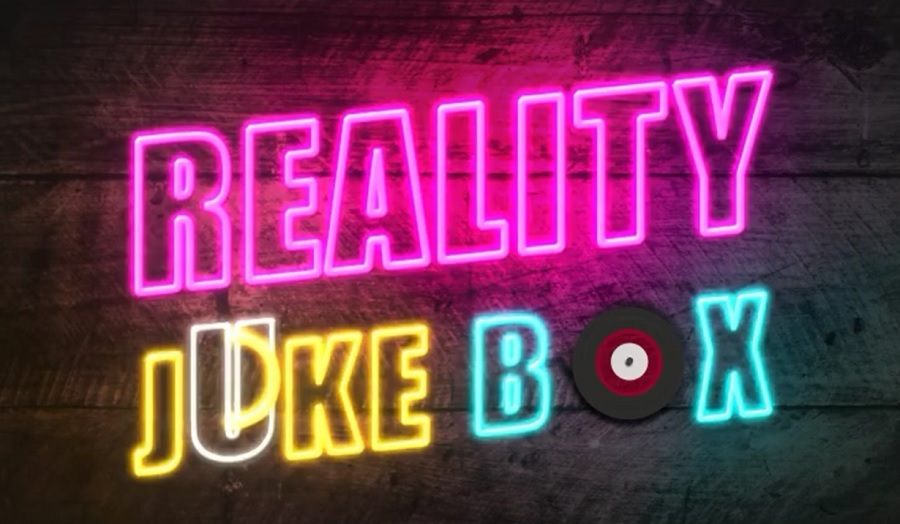
.jpg)
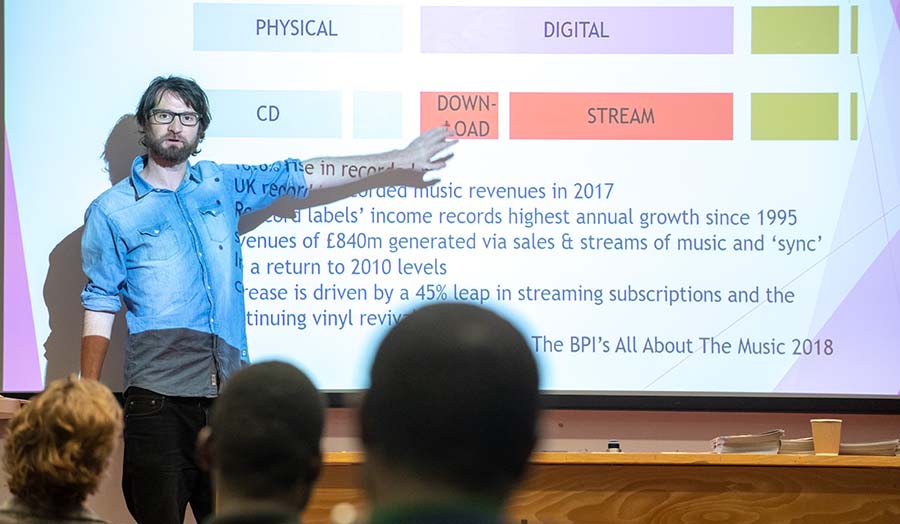

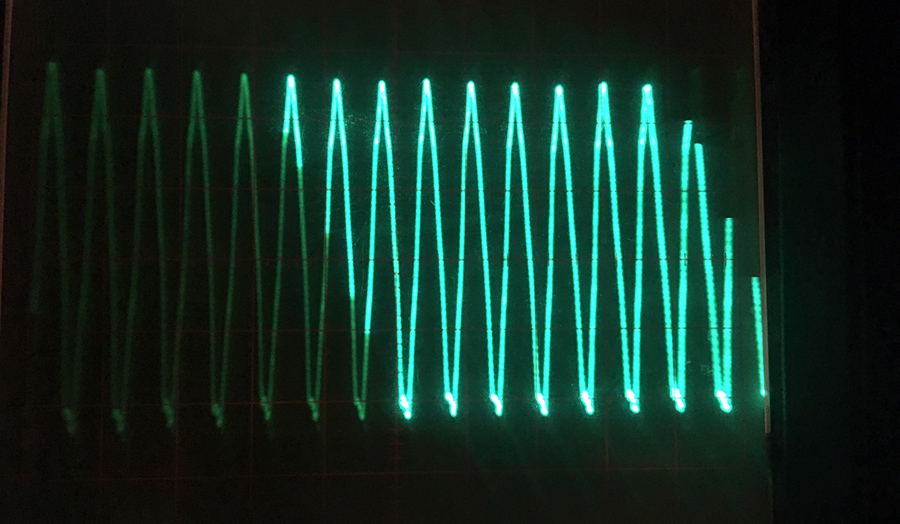
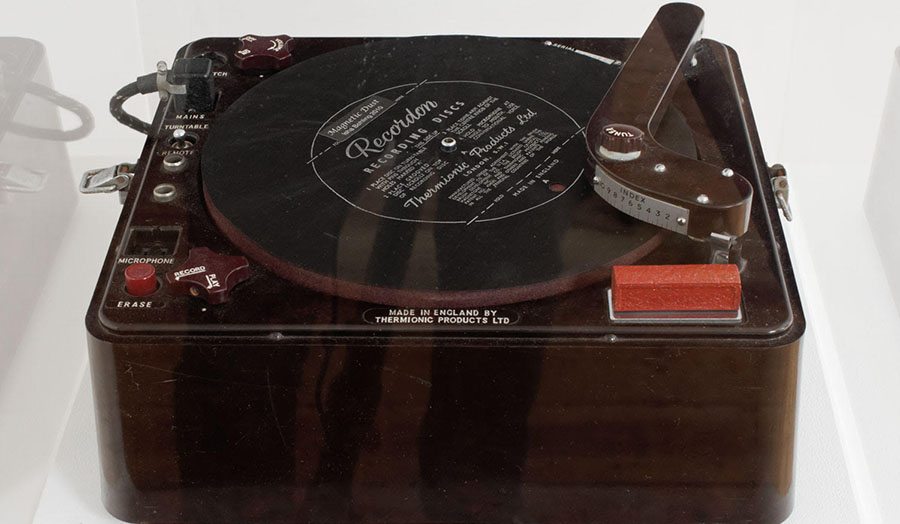

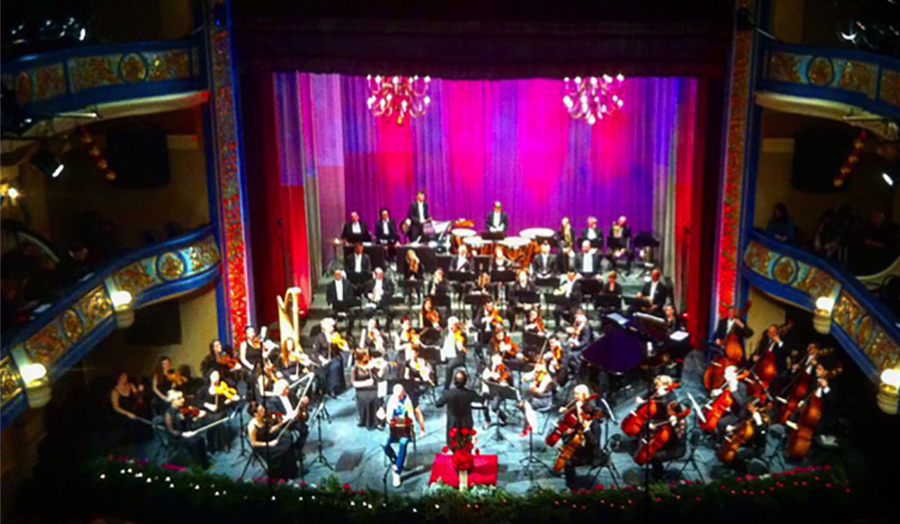
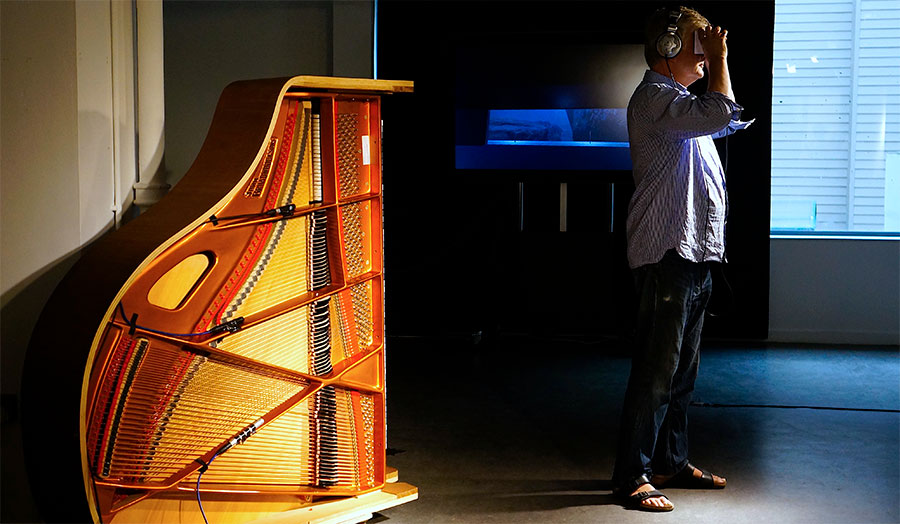
.jpg)
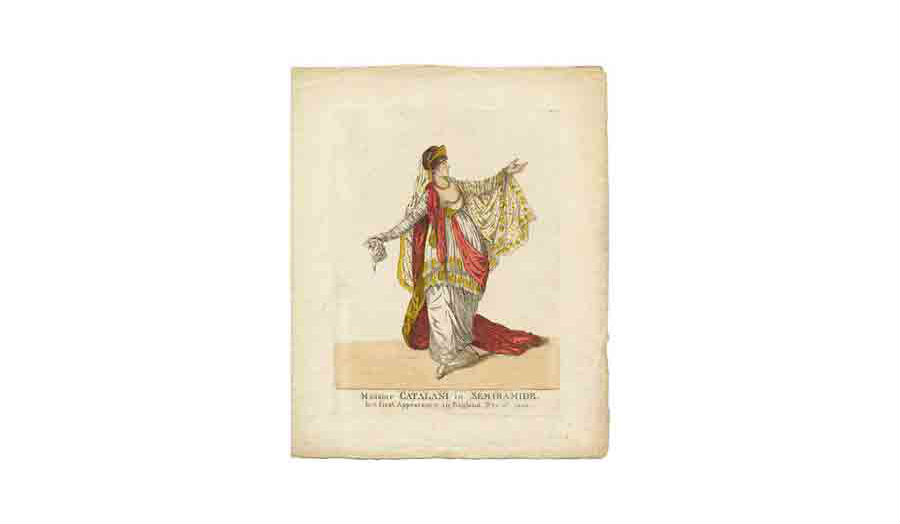
-(1)-(1)-(1)-(1).png)
